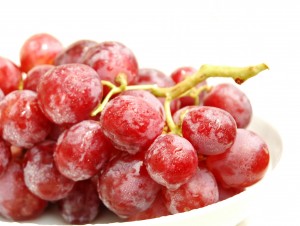 eratrol found in red wine, chocolate and grapes is not associated with longevity or the incidence of cardiovascular disease, cancer and inflammation, according to a new study from Johns Hopkins University School of Medicine in Baltimore.
eratrol found in red wine, chocolate and grapes is not associated with longevity or the incidence of cardiovascular disease, cancer and inflammation, according to a new study from Johns Hopkins University School of Medicine in Baltimore.The “French Paradox” of a low incidence of coronary heart disease despite a diet high in cholesterol and saturated fat in France has been attributed to the regular intake of red wine, in particular, to resveratrol and other polyphenols contained in wine. Some preliminary evidence has also suggested that resveratrol may have anti-inflammatory effects, prevent cancer, and decrease blood vessel stiffness.
However, the John Hopkins University study, which was published on 12 May 2014 in the journal JAMA Internal Medicine, found no association between high levels of resveratrol in participants’ urine samples and longevity or a lower risk various diseases. The study was undertaken by Richard D. Semba, M.D., M.P.H., of the Johns Hopkins University School of Medicine, Baltimore, and colleagues.
Study method
Participants in the John Hopkins University study (a sample of 783 men and women 65 years or older) were part of the Aging in the Chianti Region study from 1998 to 2009 in two Italian villages. The authors sought to determine if resveratrol levels achieved through diet were associated with inflammation, cancer, cardiovascular disease, and death. Levels were measured using 24 hour urine collections to look for breakdown products of resveratrol.
During nine years of follow-up, 268 participants (34.3 per cent) died; of the 639 participants free of cardiovascular disease at enrollment, 174 (27.2 per cent) developed cardiovascular disease during the follow-up; and of the 734 participants who were free of cancer at enrollment, 34 (4.6 per cent) developed cancer during the follow-up. Urine resveratrol metabolite levels were not associated with death, inflammation, cardiovascular disease or cancer in these older, community-dwelling participants.
“In conclusion, this prospective study of nearly 800 older community-dwelling adults shows no association between urinary resveratrol metabolites and longevity,” the authors wrote. “This study suggests that dietary resveratrol from Western diets in community-dwelling older adults does not have a substantial influence on inflammation, cardiovascular disease, cancer, or longevity,” they said.
The study was supported by a variety of grants from different funding sources.





